- Home
- Rose Tremain
The American Lover Page 13
The American Lover Read online
Page 13
Lucy tries to light a cigarette. Her hand holding the lighter shakes. The lighter flame is snuffed out by the breeze. Hannah calmly takes everything, lights the cigarette and gives it to Lucy and when Lucy has inhaled a long draught of it, she says: ‘I had a dream about him last night.’
‘About Dad?’
‘That dream I have sometimes. Mermaids, or young women like mermaids, swim down to him. He’s lying there on the seabed. Absolutely just as beautiful as he was. And the women, or mermaids or whatever they are, start chattering to each other, saying, “Hey, look at this man. So sweet in his uniform. Isn’t he a darling?”
‘And they cluster round Dad. They stroke him. They don’t kiss him. It’s not erotic, really. They just stroke him till all the creases in his uniform are gone and his hair – you remember his blond hair in the photographs? – is all smoothed down and tidy. Then, one of them says, “we’d better go. He’s not ours.” And they swim away.’
‘I think that’s quite a lovely dream, Mum,’ says Hannah. ‘And they were right: he wasn’t theirs. He was yours.’
‘Well, yes, just for the briefest time. Just long enough to give me you.’
The two women are quiet. Lucy smokes. Hannah looks to where her stepfather, Ray, and his friends, Peter and Monica, are now making their way through the low breakers, jumping like children. Along the beach comes a man on an old bicycle, selling iced Coca-Cola from a little cart drawn after the bike.
‘Darling,’ says Lucy, ‘that would be lovely. A Coke. Wouldn’t it?’
The farm of La Charité, south of Caen, France, June 1976
Gaston eats his lunch in the shade of a holm-oak plantation. His thirty-year-old son, Paul, is with him. They drink from a stone bottle of cider and feel contented with the fine summer day and with the world. Gaston looks up at Paul, to where sunlight catches the smooth, tanned skin of his cheek, and says: ‘You know you’ve got your grandfather’s good looks. Lucky for you. They skipped a generation with me, but you got them.’
Paul says nothing to this. He’s heard it many times before and he doesn’t need his father to tell him he’s handsome. Girls tell him without saying a word. He bets he’s already had far more girls than Gaston ever dreamed of. Girls feast on Paul, as though he were made of honey. He changes the subject. He says, ‘Have you thought any more about my suggestion for the drainage of the wet-meadow, Papa? You know we should plant the trees before the autumn rains.’
But Gaston is still preoccupied with the resemblance of his son to his own father, killed on the road not far from where they sit in the beautiful oak shade. He chews his sandwich and says with his mouth full, ‘Sometimes he’d look at me, your grandfather, your dear Pappi, Antoine, whom you never knew. He’d stare at me with that amused look he had, and say: “You’ve got a funny old mug, Gaston. But never mind. With boys, it’s the heart that counts and you’ve got a good heart. Lucky you’re not a girl, eh?” He used to say that from time to time: “Lucky you’re not a girl!”’
Paul smiles. This, too, he’s heard before.
‘I’ve calculated,’ Paul says, ‘that we could plant thirty willows, leaving plenty of space in between for growth to full maturity. Thirty willows would drink that meadow dry and all the autumn flood problems would be solved.’
‘He talked about it once: about willow trees. Pappi talked about it. Never did it, though. Killed on the road to Caen before he could buy the saplings . . .’
Paul looks over to Gaston. Sometimes – and now is one of those times – he seems much older than his fifty years. He appears to Paul like an old man, choking up with half-remembered things, as though there were a great struggle going on inside him to find, in among all that was half-remembered, those moments which had been absolute and true.
And nobody helps him do this by encouraging him to say what is on his mind. Paul’s mother, Solange, lives her life in the corners of rooms, furtive in her gestures, stepping from hearth to table so silently, it’s as if she were wearing cloth shoes. Before Gaston met and married her, she’d wanted to be a nun. Perhaps she’s never stopped wanting to be a nun? Perhaps silence was what she longed for, and still longs for, in the world? But she took pity on Gaston – so alone in 1944, so terrified to find himself an orphan at nineteen. He had clung to Solange and couldn’t bear to let her go. In the nights, they’d both screamed, like children in pain.
Pity for Gaston’s memory-cluttered mind suddenly chokes Paul, and he says: ‘Talk to me some more about Pappi. Was he still handsome when he died?’
‘Oh yes,’ says Gaston. ‘That’s for sure. He was my age, or older. But I can see him walking home up the lane, muddy from his day in the fields, tired too, I reckon, but he didn’t let that show. He was a fine man. I worshipped him. I used to say to myself, I’d do anything to get his love. I’d imagine all kinds of madcap things, like becoming a war hero, to make him proud of me. I used to think there wasn’t anything I wouldn’t do, if he asked me. Not a single thing on earth. I was ready to commit a crime. Anything. And I did.’
‘You did what?’
‘No, I mean I was. I was ready to do anything for Pappi. I went on and on thinking, or believing, that what I did, I did for his sake. To make him proud. You see?’
‘He’d be proud of how you’ve kept the farm going. Proud of everything at La Charité.’
‘You think so?’
‘Yes. It’s ship-shape. It pays a good living . . .’
‘Good enough for you and me. But you’ll never be rich.’
Gaston lapses into silence, finishes his lunch and then lights a Gitane. The flattish cigarette still adheres miraculously to his lips as he says suddenly, ‘I’m not keen on this idea you’ve got for planting willows.’
‘Why not?’
‘Too expensive, son.’
‘We could do it over two seasons.’
‘No. It’s not worth the labour. What’s a bit of flood water in October? I like that meadow as it is, as it’s always been. Let’s leave it alone.’
RAF Base, Tangmere, Sussex, England, May 1944
Everybody knew that the D-Day landings in Normandy were going to come soon and that the RAF pilots would then be in combat over France.
Lucy’s friend Patricia had said to her: ‘The thing I think is going to be most important for them is that when they come back from a sortie . . . from facing German flak and all that awfulness . . . I think it’s going to be really important that we look beautiful for them. Don’t you agree, Lucy?’
Lucy went and stared at herself in the mirror. She had no idea whether she was beautiful or not. She had blue eyes and mousy hair. Her mother had never said she was pretty. But then, when she’d met Geoffrey, one of the most handsome men she’d ever laid eyes on, he’d told her she was lovely. That was the word he’d used: lovely. My lovely Lucy.
With wartime restrictions, they couldn’t have what Lucy’s mother termed ‘a proper wedding’. But they had made their vows in church and Lucy had worn a little white velvet hat and carried a posy of lily of the valley, and Geoffrey had looked a dish in his RAF uniform, and Lucy had believed she was the most fortunate young woman in the world. Later, in the cool March night, when they were making love, Lucy thought, Now he must never leave me. Now, he is inside me for ever, part of my being. I shall never let him go.
They talked, in a sweet, companionable way, about their future. They wanted children and a house of their own with a garden, where these children could play. They agreed about everything. Their dreams were identical. And when, in May 1944, Lucy told Geoffrey she was pregnant, he did a little dance of happiness.
‘Darling,’ he said, ‘that is pure heaven! We’re going to have a great life.’
Of course, they had to talk about the war and what was going to happen after the Normandy Landings. Geoffrey was flying Typhoons. He said, ‘The Typhoons are incredibly strong and impressive, but actually, I loved my old Spitfire. I could stand on the ground and reach up and pat the cockpit, like you pat a horse, but t
he Typhoon dwarfs me. Climbing into it is a feat of mountaineering. You can get to feel that your plane doesn’t think much of you.’
‘Oh darling,’ said Lucy, ‘let me go and talk to your silly old plane, then. I’ll tell it you’re the best pilot in England!’
So even that – that talking about the war and the battle to come, leavened as it was by little jokes and expressions of tenderness – was never as painful as it might have been. Nothing, thought Lucy, will ever be really painful again, as long as Geoffrey and I are together, as long as he loves me.
Yet now, her face in the mirror, touched up by a tiny dab of rouge, because the pregnancy made her pale, reflected back at Lucy something she didn’t want to see; it reflected fear.
The farm of La Charité, south of Caen, France, May 1944
At eighteen, Gaston shared the burden of all the farm work with his father, Antoine.
It was just the two of them, now. Gaston’s mother had been shot while visiting a relative in Caen on the day the Germans marched into the city. Her body was carried back to La Charité on a hay cart.
Though Gaston mourned his mother, the thing which terrified him most was the idea that he could lose his father. For he saw that his father was an exceptional man: strong, handsome, hard-working and kind. He is, thought Gaston, the rock on which my life rests. If anything or anyone takes him away, I’m going to be helpless.
He began to watch over him.
Instead of getting up at five thirty to start the milking, he rose at five o’clock, so that Antoine wouldn’t have to sit so long on the hard milking stool. He took down his mother’s old recipe book and taught himself how to make nourishing daubes, cassoulets and crêpes, to make sure his father had a good diet. Instead of letting Antoine go alone to sell their surplus produce at the market, he insisted on accompanying him – just in case ‘something bad’ happened on the road. In this occupied land, it was impossible to predict how things might change from week to week, or even from hour to hour.
Word had reached La Charité that there was going to be an invasion soon, from across La Manche. The news went round that it was going to be massive and that the Germans would be driven out of France in a matter of weeks.
Gaston and Antoine talked about the ‘liberators’ who were going to come: de Gaulle’s brave army, of course, but also British, American, Canadian, Australian and who knew what other nationalities. They tried to imagine this vast army massing in England somewhere, but it was difficult to see it, difficult to believe that it would actually arrive. And what would the Germans do, when or if it did arrive? Would they burn the farms? Would they kill everyone and everything in their pathway as they retreated?
‘What we have to do,’ said Antoine, ‘is to stay alert. There may be fighting all around us. We have to be careful and hold our nerve, so that we’re not caught in a trap, like fools. And dust off your rosary, Gaston. God can’t be on the German side any more.’
RAF Base, Tangmere, Sussex, England, June 1944
Lucy had been taken to see the Typhoons. She had touched the fuselage of one with her small, white hand. On the 6th of June, she said to Geoffrey, ‘Is it going to get very terrible now, darling?’
‘No, no. You mustn’t worry. The guns will barely catch our shirt-tails!’ Geoffrey reassured her. ‘We’re just going to give those ill-mannered panzers a lesson they’ll never forget.’
Lucy went to find her friend and said: ‘I’m so frightened, Patricia. I want to be strong for Geoffrey. I don’t want to feel terrified like this. I want to be like Queen Eleanor of Aquitaine. Is there a knack to it?’
‘Yes,’ said Patricia. ‘I think there is. What I do, whenever Simon goes out on a mission, I imagine he’s gone to the bookies.’
‘The bookies?’
‘Yes. You try it, Lucy. Imagine Geoffrey’s just popped out to put a little bet on the two-thirty at Newbury. Try to see him there, at the bookies’ window, with all the fug round him that’s in those places, and those old geezers you see there, keeping their trousers up with string and laying their last ha’pennies on the gee-gees.’
‘Gosh,’ said Lucy. ‘Does that work?’
‘Yup. If your imagination’s good enough. You have to be able to truly imagine things. I mean, I can actually see Simon walking out of the bookies’ shop and sauntering home, cool and calm, with nothing to worry about except, will his horse win at Newbury? If he’s late and it gets dark, then you’ve got to pretend he’s gone into a pub and had a pint and then another pint or a whisky or something. But he’s quite safe, OK? Simon’s safe. Geoffrey’s safe. They won’t be hurt. They won’t die. And soon enough, they’ll come walking in the door.’
The next time Geoffrey flew, Lucy wrote to her mother: I’m trying to imagine Geoffrey’s gone to the bookies. My friend, Patricia says this should be easy. You just have to picture it. The trouble is I’m not sure I’ve ever been in a bookies’ shop. So I can’t quite decide what it would be like. What I think I’m going to have to do is to believe Geoffrey’s at his club in London (where I haven’t ever been, either, but I can somehow imagine it better, with palms in pots and waiters in tailcoats et cetera) and then he’s going to get a train home and walk in the door, clutching some potted meat he’s bought at Fortnum’s.
She paused here in her letter because she knew something was troubling her, and then she realised what it was: evening was coming on and Geoffrey hadn’t returned.
She patted her hair, drew herself up taller in the chair, because she knew that Queen Eleanor had been tall – tall and strong and never giving up or giving in.
She resumed her letter. The thing is, Mummy, she wrote, whatever trick stops me from being afraid I’m going to use. I’ve told myself that if I never give in to fear, then no harm will come to Geoffrey.
The farm of La Charité, south of Caen, France, June 1976
The weather was so fine and warm now that it was difficult to believe summer would ever end and autumn arrive, with its winds and floods. But arrive it would. The previous year, the floods had crept almost to the house, and so Paul was determined to have one last try at persuading Gaston to start planting willows in the back meadow that bordered the stream.
One hot afternoon, while Gaston was taking his siesta, Paul fetched a pick and a shovel from the barn and walked to the back meadow and began to dig. What he wanted to show his father was that, even now, when no rain had fallen for two or three weeks, this land was boggy and the water-table still so high that, when the river broke its bank, it was unable to absorb much water at all, putting the house at risk from flood damage. The statistics on drainage by willow plantation were very good; the trees would certainly solve the problem. Paul just couldn’t understand why Gaston was being so obstinate about this.
The ground was hard at first. Paul had to cut away the layer of thick summer grass, then smash into the earth with the heavy pick. But no more than a half a metre down, the soil darkened and softened. Paul decided to widen the hole, so that he could stand in it and keep shovelling out the earth. He reasoned that when Gaston saw how relatively easy it was to dig in this meadow, he would relent and order the trees. Paul worked out he would be able to plant four or five saplings a day. In a week, the whole task could be completed.
Bringing the pick hard down again, to make the hole bigger, Paul suddenly felt a jarring pain in his arm. The pick had hit a stone.
He nursed his arm for a moment and took a drink of water, and wiped the sweat from his neck. Then, he took the shovel and began to scrape carefully across and round the stone, to see how large it was.
The sun was still high, and as Paul stood up to rest, he saw it glinting on the stone. Except that the stone was not a stone. It was something that looked as though it were made of some kind of glass or Perspex. He couldn’t think what this could be, unless, long ago, there had been a greenhouse or cold frames out here, which had been allowed to fall down and lie buried in the earth, but he could never remember any such structure and Gaston was not a
man to let anything fall to ruin.
Paul tapped at the glass gently with the pick. He expected it to crack, but it didn’t. Scraping away more soil, he unearthed a rusty metal bar, holding the glass structure in place and at the end of the bar was a handle. Paul stared at this. Clearing debris and stones from it, he put his hand into it and pulled upwards, but nothing moved. Whatever it was he’d found was clamped shut by time and weather.
He sat down beside it and smoked a cigarette. The sun went in and when he looked again at the strange structure, he seemed to see it afresh and formed a new idea of what it might be: it was the canopy that covered the cockpit of a plane.
RAF Base, Tangmere, Sussex, England, June 1944
Lucy sat very still, listening to the eight o’clock news.
She’d tried to eat some supper: a slice of tinned ham and a baked potato. But it had been impossible to eat. She tipped the food away.
The BBC newsreader told her that fighting in Northern France was still very heavy. German resistance was proving ‘stronger than expected’ and Allied progress was slow. ‘Hopes,’ said the newsreader, ‘of liberating the beleaguered city of Caen have been temporarily deferred.’
Lucy switched off the wireless and went and lay down on her bed and put her hand on her belly, where the baby lay safe and nourished inside her. There was still plenty of light in the sky – enough, Lucy thought, to allow the pilots to find their way home. Geoffrey would still have fuel left. There was no need to worry about him yet . . .
She set herself to imagining Geoffrey in his club, sitting in an over-stuffed leather chair, comfortable and happy, smoking a cheroot, listening to the musical ticking of a mantelpiece clock, letting just a little more time go by until he got up and said goodnight to the people he knew there and walked out into the darkness and then home through her front door.

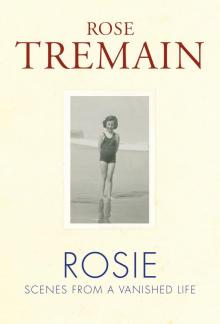 Rosie
Rosie The Garden of the Villa Mollini
The Garden of the Villa Mollini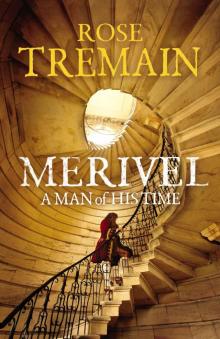 Merivel: A Man of His Time
Merivel: A Man of His Time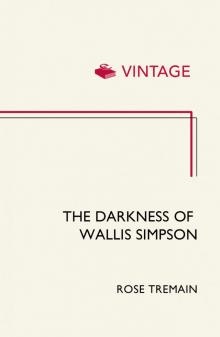 The Darkness of Wallis Simpson
The Darkness of Wallis Simpson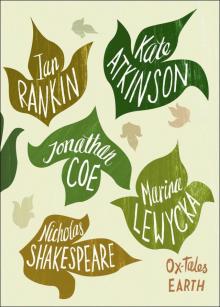 Earth
Earth Sacred Country
Sacred Country The Swimming Pool Season
The Swimming Pool Season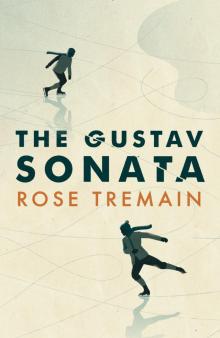 The Gustav Sonata
The Gustav Sonata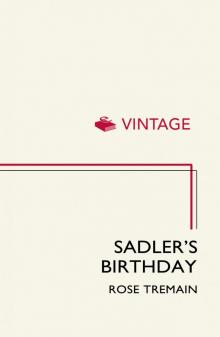 Sadler's Birthday
Sadler's Birthday The Cupboard
The Cupboard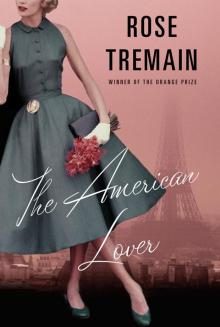 The American Lover
The American Lover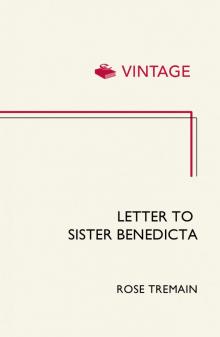 Letter to Sister Benedicta
Letter to Sister Benedicta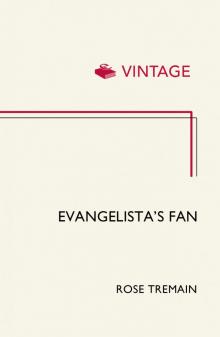 Evangelista's Fan
Evangelista's Fan Restoration
Restoration The Road Home
The Road Home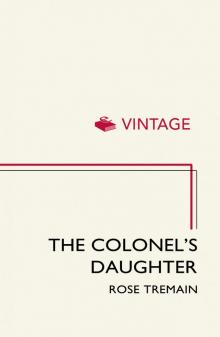 The Colonel's Daughter
The Colonel's Daughter The Way I Found Her
The Way I Found Her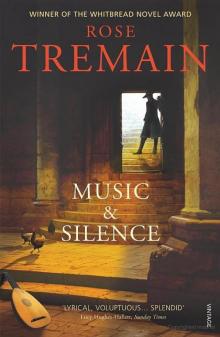 Music & Silence
Music & Silence